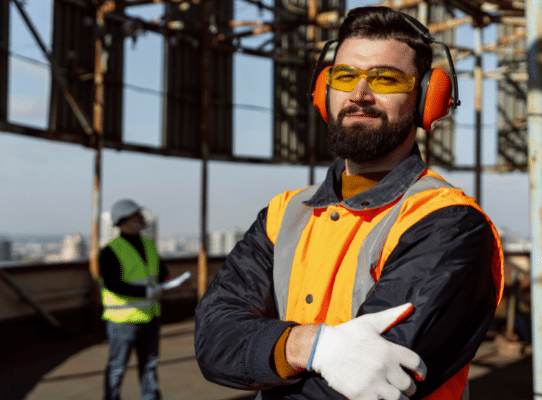
Every business needs high-quality equipment to get its job done and in the right way. But seldom do business owners have money set aside to pay for the equipment up front. They may be willing to do so but know that doing so may put a substantial dent in their cash flow. This is where equipment financing comes in.
Equipment financing is a quick and economical way of obtaining fencing to replace or upgrade much-needed equipment to keep your business running or expand to meet rising demand.
This article provides an overview of equipment financing—how it works, rates, fees, terms, qualification requirements, and where to obtain such a loan.
What Is Equipment Financing?
Equipment financing refers to a loan or lease that a business uses to purchase business-related equipment. You can use this type of funding to borrow or buy physical assets such as a copy machine, restaurant oven, or company vehicle. We are not talking about equipment financing for personal use.
There are several types of equipment financing, each catering to specific types of equipment and businesses, like for instance construction equipment financing.
What you should understand is that equipment financing funds physical assets. Unlike other types of funding, such as a working capital loan, the asset you’re leasing or purchasing acts as your collateral. Defaulting on the loan or lease means your lender can repossess that particular asset they funded.
Therefore, equipment financing is a lower-risk and cost-effective way of acquiring equipment than most other financing options.
How Does Equipment Financing Work?
Before you can contact your equipment financier, it’s advisable to know what you’re purchasing and who you plan to buy it from. That’s because your financier may cover some or a percentage of your equipment cost.
In fact, most equipment financiers pay to the seller directly, without the money ever getting to your bank account.
The terms that apply to your financing will depend on whether it’s a lease or a loan. But in most cases, these terms last anywhere between two and seven years. Over this period, you’re expected to pay monthly installments to your equipment financier. These cover the principal plus loan interest.
Once you have paid the loan in full, the equipment becomes yours. However, if you default midway, the financier can repossess the asset. Remember, the asset acts as a guarantee for the loan. So, they have all the right to take it back.
Always ensure you review the loan terms carefully and understand the risk before proceeding with the financing. Some financiers will even require a personal guarantee, which puts personal assets at risk in case of default.
Equipment Loaning Vs. Leasing
Equipment loaning is what we’ve discussed so far. It’s taking a loan with the express purpose of purchasing a business asset, which typically secures the loan.
On the other hand, equipment leasing allows you to make periodic payments to the equipment owner over an agreed period. At the end of the leasing term, you have to return the equipment to the owner.
If you intend to own the equipment, some leasing companies offer you the option to buy it at the end of the term.
Generally, leasing qualifications are less stringent than loaning. However, the monthly payments you make (despite them being lower) might be more expensive in the long run. The interest rates for leases also tend to be higher, making it more costly than equipment loaning.
If you decide to own the equipment at the end of the leasing term, take advantage of Section 179 depreciation tax benefits. You can sell it in the future if you no longer want or need it.
Who Can Get a Business Equipment Loan?
According to the Equipment Leasing and Financing Association (ELFA), 79% of U.S. businesses rely on equipment financing (leases, loans, and lines of credit) to purchase equipment. This applies to firms across all industries.
Some of the businesses that equipment financing caters to include:
- Restaurants: For equipment such as grills, commercial sinks, fryers, microwaves, freezers, dishwashers, warmers, and refrigerators.
- Transportation: Equipment includes pickup trucks, owner’s cars, trailers, and vans.
- Printing: Small businesses often lease one or two copiers. They may require equipment financing to get the more expensive printing equipment.
- Construction: Lawnmowers and cranes
- Farming: Most modern farmers lease many pieces of equipment you see on their farms today.
In short, all businesses, small or big, new or old, can get financing as long as they meet the lender’s loan requirements.
Best Equipment Financing Companies
There are several commercial lenders from whom you can get equipment financing. These include banks, the Small Business Administration, and online lenders. Where you choose to get the loan depends on whether you meet their loan terms and requirements.
Apply Now!
Parting Shot
Equipment financing is an excellent solution if you cannot afford to pay for equipment from your pocket. And the good news is that there are many equipment lessors and lenders to choose from. It’s also pretty simple. You can even apply online. Just scrutinize the terms to ensure the terms and requirements work for your business.